Amanda Johnstone: Transhuman CEO’s journey from George Town to the cutting edge of AI
As a young girl, Amanda Johnstone drew a crude picture of herself on the cover of TIME. More than 25 years later, she was named one of the magazine’s Next Generation Leaders.
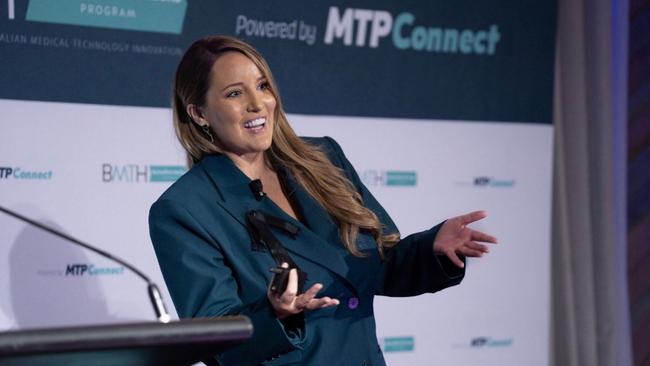
TasWeekend
Don't miss out on the headlines from TasWeekend. Followed categories will be added to My News.
As a child growing up in Northern Tasmania, Amanda Johnstone was already mapping out a bright future for herself.
The young Johnstone, now a globally recognised AI technologist, would gaze longingly at copies of Time Magazine in the bathroom of her grandparents’ George Town home.
“One core memory [I have] is a portrait I drew in prep of … myself on the cover of TIME, complete with the red border,” she recalls.
More than 25 years later, Johnstone, who is dyslexic and has obsessive-compulsive disorder, was named by TIME as one of its Next Generation Leaders.
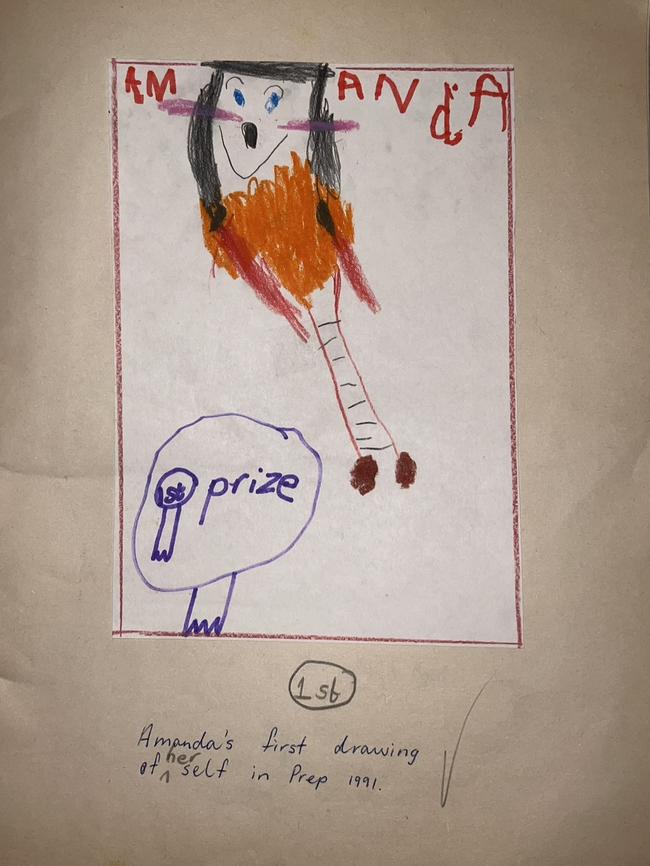

It was less a prophetic twist of fate and more a natural outcome of Johnstone’s passion and single-minded determination to achieve great things.
But she’s quick to point out that she couldn’t have gotten to where she is today without an invaluable support network.
“I was so lucky in high school, I had some teachers who really believed in my unique leadership and visions for the future and heavily invested their time and energy in me,” she says.
Today, Johnstone is the CEO of Transhuman Inc., a mental health and emotion AI research and development lab that she co-founded.
The 38-year-old, based in Sydney, advises top international firms on how technology – particularly AI – can open up a world of opportunities in the modern business landscape. Among the companies she has assisted are Kellogg’s, Commonwealth Bank, Optus, and Allianz.
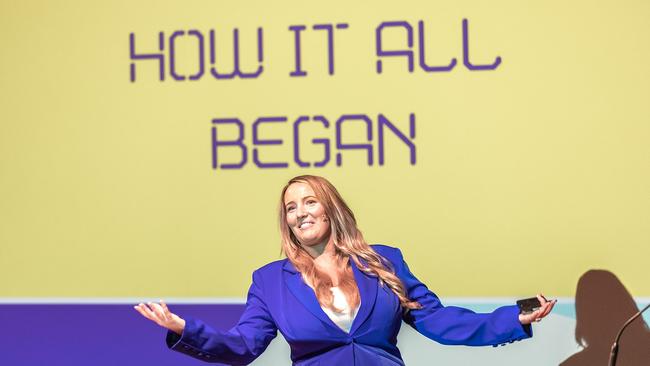
For Johnstone, AI is not a dirty word and technology is a bottomless toolbox. Inside of it she sees countless instruments – both real and theoretical – to be wielded for the good of humankind.
“I grew up in a [time] without computers at our fingertips. We used to come home when the streetlights came on. We played outside, cared for the elderly and tended to the gardens,” she says.
“Then, we became slaves to our computers – myself included. I’m optimistic AI will optimise our time by completing intensive tasks like data sorting, processing and manual input on our behalf.
“We know here in Tasmania there aren’t enough people on the front line, to work in our hospitals, care for the elderly, care for our children, pick our apples and run our hotels. AI will help us free up our administration workers to be more human-centric again.”
Dr Chris Mattmann, the chief technology and innovation officer for the NASA Jet Propulsion Laboratory, who is a friend of Johnstone’s, says Johnstone’s success as a communicator can be attributed to her “inviting presence” and “trust-building attitude”.
“I first encountered her during her hit Clubhouse show, ‘Talk Nerdy to Me’, in which I was first drawn to the very real and noble and raw technology and personal conversations advancing the field during the pandemic in several areas, including artificial intelligence, blockchain, crypto, NFTs and more generalised topics,” he says.
“Beyond being the amazing co-founder and host of this group, Amanda was inclusive, cordial and an absolute pleasure to work with. She and I hosted several rooms and shows [on Clubhouse] related to the dark web and my passion for applying data analytics to solving international financial crime related to the Panama Papers.”
With an almost laughably impressive CV, it’s clear Johnstone was destined for a life of influence from a young age.

At 17, she and her then-boyfriend, Nick Macri, opened a clothing store, Sebachi, in Launceston, after growing frustrated with the lack of retail options in their hometown.
The pair worked frantically to raise the money they needed to fund the business.
“I remember taking my prized CD collection into Cash Converters to sell. Every dollar helped,” Johnstone says.
Johnstone and Macri even reached out to Cotton On founder, Nigel Austin, promising to buy wholesale from the business and promote the Cotton On brand in Tasmania at a time when it had no stores in the state.
“With that came hand-in-hand mentorship from Nigel … We were very, very lucky. I do believe, when the student is ready, the teacher appears. If you need help, you just have to ask,” Johnstone says.
Even at this point in her life, Johnstone was tinkering at the intersection of technology and commerce. Sebachi was one of Tasmania’s first online stores and Johnstone also used early forms of social media, such as MySpace, to sell clothes.
She and Macri eventually went their separate ways and the precocious Johnstone was tapped by the West Tamar Council at age 18 to be the first
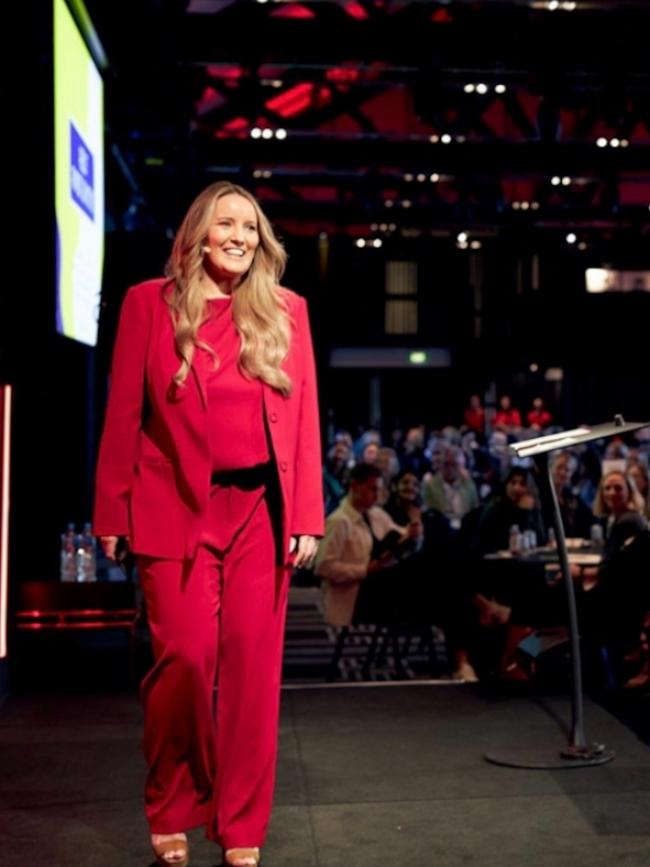
youth development officer employed by an Australian council.
She was tasked with running community workshops for young people, establishing a youth council, and visiting local schools to encourage and motivate the next generation of Tasmanian leaders.
Johnstone also spearheaded wellbeing and suicide prevention projects during her time in the role, trained as a volunteer peer support worker, and managed the Timeout House, a youth suicide prevention retreat in Launceston.
In these initiatives were the roots of an idea Johnstone would flesh out years later, when she invented a proprietary mental health check-in app called Be A Looper, which gives people a platform to keep ‘in the loop’ with five of their closest friends and family every day.
“I lost many friends and people in my network … to mental ill-health. The one common thread was they all felt like a burden on others for reaching out constantly for help,” she says.
“That’s where I became passionate about lowering the barriers and thresholds for getting support, by making it a single daily swipe and by myself role modelling vulnerability, letting our loved ones know it’s never ever a burden to ask for support.”
After her experience with Sebachi, Johnstone used her new-found retail knowledge to support another Tasmanian business, Esther Boutique, to start selling its products on the internet.
She helped set up a MySpace page for the business, leading to an explosion in sales. Johnstone then went on to work with ASX 200 companies and retailers to “support their digital transformation”.
“It was an incredible decade witnessing growth,” she says.
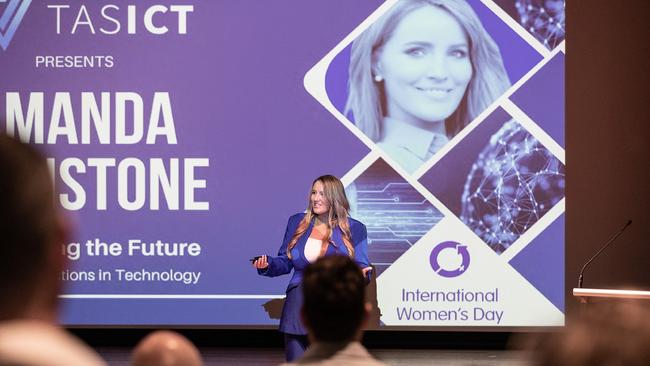
The work Johnstone does in 2024 is not so different from the assistance she provided to businesses in the heady early days of the new millennium.
“As a technologist I am responsible for seeing around corners. I work with the leading experts and companies in the world to help them see and prepare for what is next,” she says.
Johnstone was in Hobart this month to kick off a national roadshow with leading vehicle fleet management firm, SG Fleet, helping its government and corporate clients to better understand advances in technology and prepare for future innovations.

“Unlike a futurist, who just talks about the future, I actually engage my team to research, develop and build these technologies, often alongside Fortune500 companies,” she says.
While she’s faced obstacles and occasional sexism, Johnstone says being a woman in the tech industry hasn’t been as daunting as people may think.
“I’m going to go against the status quo and say it’s easy to be a female in technology,” she says.
“You are memorable, people don’t forget you. I walk into some of the largest tech companies in the world after 20 guys in black hoodies and they don’t forget what I have to say.
“Being the woman in the room is often unique and sets you apart from everyone else.
“I have experienced a large amount of misogyny and gender-based violence since I was a child [and] the technology sector has actually been the safest space for me to thrive.”
Jess Wilson, the co-founder of Women Making Waves, a technology company seeking to advance women’s rights law reform, describes Johnstone as “courageous … and … audacious in her pursuits to make the world a better place with the use of some innovative thinking and technology”.
“She will either have an inspiring conversation with you so you feel driven to take action and reach your goals, or she will drag you to download the latest app or act on the latest technology to grow your business. Because rising tides lift all ships. She often can see what’s coming next and wants others to win alongside her,” Wilson says.
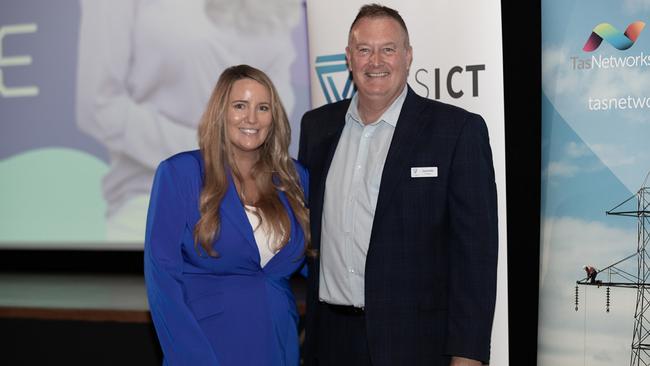
TasICT president David Mills hosted Johnstone at an International Women’s Day event in Hobart in March, where she was a keynote speaker.
He says she is a formidable figure due to her ability to stay “abreast of emerging technology” and her open acknowledgment that “she isn’t necessarily the subject matter expert [but] she then finds the right people to assist in bringing her ideas to life”.
“AI is here to stay and will have a profound impact on individuals in the future, in particular how it is leveraged to enhance our day-to-day activities,” Mills says.
“Businesses need to develop policies and guidelines around the acceptable and ethical use of AI. Governments across Australia have been collaborating on this and the Tasmanian government is finalising [its] AI guidelines to be applied across [the] whole of government.”
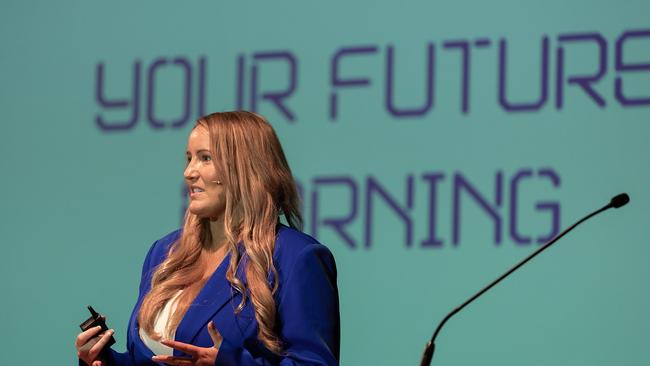
The 2023 ACS Digital Pulse report found that the current adoption rate of AI by Australian businesses was just 1 per cent but was forecast to balloon to 63 per cent by 2030.
Concerns abound regarding the potential pitfalls and ethical quandaries associated with AI, including job displacement, data privacy, and the misuse of technology for nefarious purposes, such as the creation of deep fake images and videos.
But Johnstone remains excited about AI’s possibilities and stresses that “our own human input determines the role AI plays in our lives”.

“On Facebook, Instagram, or X – previously known as Twitter – for example, who you follow and interact with determines how AI will show you like-minded posts or advertisements,” she says.
“It’s easy for us to end up down rabbit holes about extreme views or beliefs. We must be accountable for our own interactions and those of our children as we interact online. Our own bias is something that can be fuelled by each click, like, and comment.”
Above all, Johnstone is interested in the interplay between human biology and technology – known as transhumanism. She even named her company after the concept.
Johnstone sees transhumanism as one of the keys to unlocking a better future for all of us.
“Most won’t believe [it], but we are already transhuman,” she says.
“My father has a pacemaker that has a Bluetooth sensor that communicates with the cardiology department. If your granny has a hearing aid, she’s transhuman.
“We have the World Wide Web at our fingertips on our phones and our vehicles sense accidents before they happen and are starting to think on our behalf.
“That is how we are letting machines interoperate with our lives. That is how we are transhuman.
“Giving all humans – no matter what their income, gender, nationality or race – a better quality of life and health is the ultimate manifestation of transhumanism.”
Johnstone’s view of the world doesn’t accommodate anxiety over a hypothetical singularity event or some other doomsday scenario where machines take over the planet.
It’s a positive conception of a harmonious existence wherein humans and machines enjoy a relationship of mutual benefit, each improving the other.
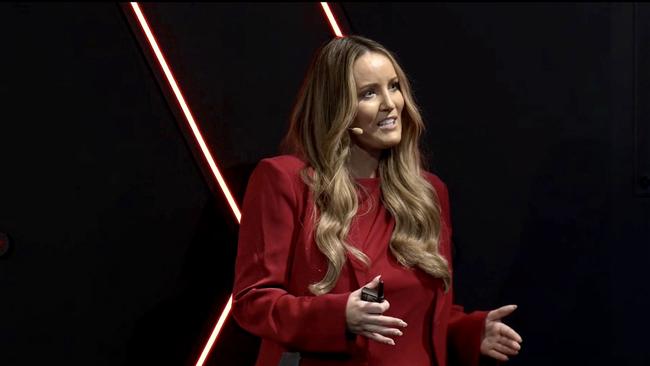
Johnstone is highly optimistic about the potential of AI to improve outcomes for everyday people.
“AI is a technology that has been operating in giant companies since the 1950s. Banks use it to stop fraud attacks to keep our money safe. Google Maps uses AI to help us reach our destinations faster. Netflix uses AI to show us shows we might enjoy watching,” she says.
“AI has significantly improved how we navigate everyday lives without us even knowing.
“With that in mind, we can be optimistic as to how these efficiencies can continue.”





